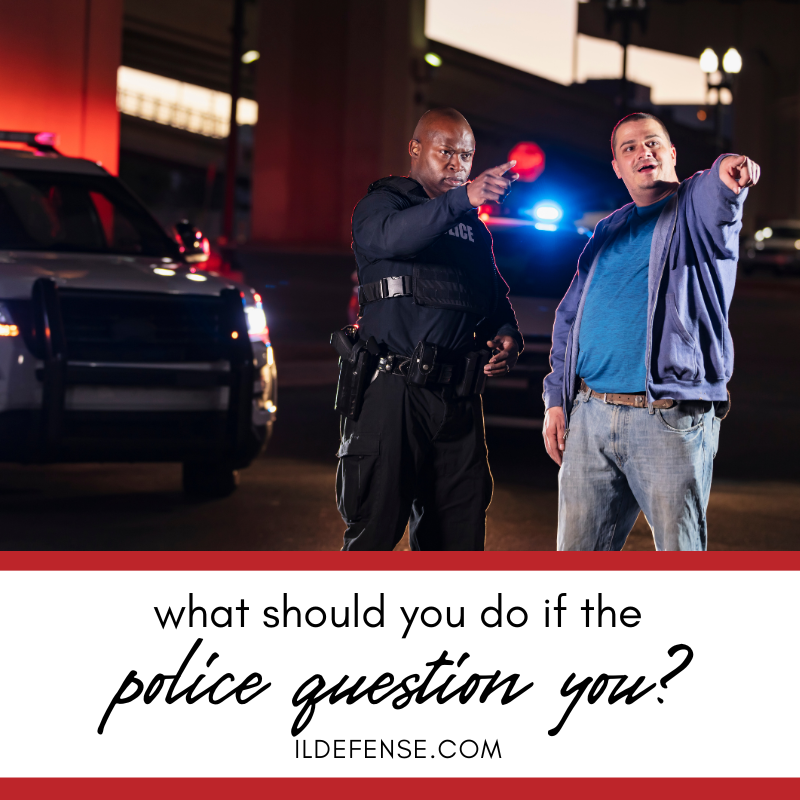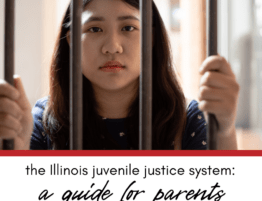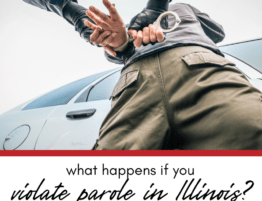
If you’ve been arrested, charged with a crime, or believe you’re in danger of facing charges in Illinois, it’s crucial to know your rights and the steps to take. This guide is designed to help you navigate these challenging situations, with the hope that you’ll consider seeking the assistance of a seasoned criminal defense lawyer in Illinois.
What to Do if the Police Question You in Illinois
This guide is tailored for individuals in Illinois who find themselves in a situation where they’re questioned by the police. Whether you’ve been arrested, charged, or feel you might soon be, understanding your rights and the legal landscape is essential.
This guide explains the following:
- Understanding your rights
- The importance of legal representation
- Common charges in Illinois
- FAQ about police questioning in Illinois
Here’s a closer look at each.
Understanding Your Rights
When the police approach you for questioning, it’s essential to remember that you have rights. You have the right to remain silent and not incriminate yourself. If you choose to speak, your words can be used against you in court. Always ask if you’re free to leave; if the answer is yes, you can walk away. If the answer is no, you’re being detained, and it’s even more crucial to have a lawyer present during any questioning.
The Importance of Legal Representation
Having a lawyer by your side can make a significant difference in how your case is handled. A lawyer can advise you on what to say and what not to say, ensuring that your rights are protected. They bring their experience and knowledge to the table, guiding you every step of the way. Remember, it’s not just about knowing the law; it’s about understanding how the system works and using that knowledge to your advantage.
Common Charges in Illinois
There are various charges you can face in Illinois, from misdemeanors to felonies. Some of the common charges include drug possession, DUI, assault and battery, burglary, and more. Each charge has its own set of consequences, and the penalties can be severe. It’s essential to have a clear understanding of the charges against you and the potential outcomes.
FAQ About Police Questioning in Illinois
Check out these commonly asked questions about police questioning in Illinois. If you don’t see the answers here, please call our office and we’ll get you the information you need.
What Should I Do if I’m Arrested?
If you’re arrested, remain calm and do not resist. Ask for a lawyer immediately and do not answer any questions without your lawyer present.
Can the Police Search My Car Without a Warrant?
In most cases, the police need probable cause to search your car without a warrant. If they believe there’s evidence of a crime in your vehicle, they can search it.
Do I Have to Answer Questions if I’m Not Under Arrest?
No, you don’t have to answer any questions. You can politely decline and ask if you’re free to leave.
What’s the Difference Between a Misdemeanor and a Felony?
Misdemeanors are less severe crimes than felonies. While both can result in jail time, felonies often come with longer sentences and more significant fines.
Facing police questioning can be stressful, but knowing your rights and having a skilled lawyer by your side can make all the difference. Whether you’re facing a minor charge or a more severe one, it’s essential to have someone who can guide you through the process and advocate for your best interests.
Do You Need to Talk to an Attorney?
If you’ve been accused of a crime, we may be able to help you – and don’t worry: It’s completely confidential. Call us at 847-920-4540 or fill out the form below to schedule your free, private consultation with an experienced and skilled Chicago criminal defense attorney now.
Contact Us
"*" indicates required fields









